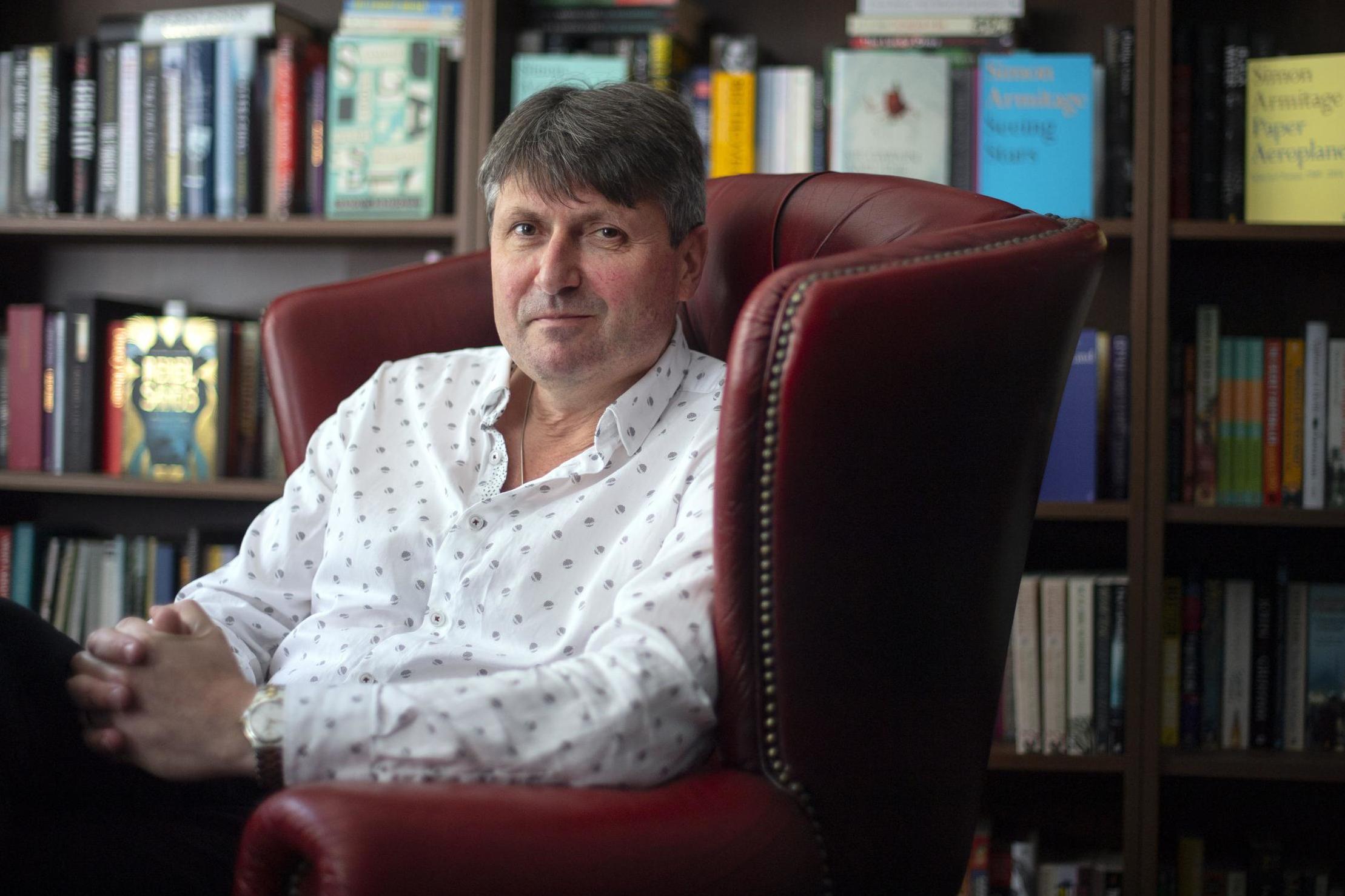Simon Armitage named Britain's new poet laureate
PM Theresa May said of the appointment: ‘Simon brings a wealth of expertise and experience to this important role’

Your support helps us to tell the story
From reproductive rights to climate change to Big Tech, The Independent is on the ground when the story is developing. Whether it's investigating the financials of Elon Musk's pro-Trump PAC or producing our latest documentary, 'The A Word', which shines a light on the American women fighting for reproductive rights, we know how important it is to parse out the facts from the messaging.
At such a critical moment in US history, we need reporters on the ground. Your donation allows us to keep sending journalists to speak to both sides of the story.
The Independent is trusted by Americans across the entire political spectrum. And unlike many other quality news outlets, we choose not to lock Americans out of our reporting and analysis with paywalls. We believe quality journalism should be available to everyone, paid for by those who can afford it.
Your support makes all the difference.Simon Armitage will succeed Dame Carol Ann Duffy as the UK’s next poet laureate, with the Queen approving his appointment for a fixed term of 10 years.
Mr Armitage – who received the Queen’s Gold Medal for Poetry last year – said he wants to “help poetry explore its potential” in an age of multimedia.
While the position does not entail any specific duty, as the 21st poet laureate Mr Armitage will be expected to produce poetry to celebrate national occasions and royal events.
Speaking about the appointment, Mr Armitage said he hopes to “build on the work of my predecessors with energy and enthusiasm” by promoting poetry, especially within education, and young talent.
“Since the laureateship was first conceived many hundreds of years ago Britain has changed enormously and the position of poet laureate has changed accordingly,” he said.
“I want to celebrate and speak on behalf of the variety of voices who contribute to the rich chorus of British poetry from a wide range of personal, literary and cultural experiences, and to help poetry explore its potential in a multifaceted, multi-vocal and multimedia age.
“The poetry of these islands is one of our greatest achievements, and as well as being proud of its traditions I want poetry to feel confident and at home in the contemporary world and to demonstrate that in a hectic and sometimes frenetic age the combination of considered thought and crafted language is more relevant and vital than ever.
“I hope poets, readers and audiences will support me in my efforts.”
Twenty-eight collections of Mr Armitage’s poetry have been published, with some of his work being part of the national curriculum. His poems are known for incorporating slang and sardonic wit as well as being easily accessible to younger readers.
Born in Marsden, West Yorkshire, Armitage worked as a probation officer in Greater Manchester before focusing on poetry. He currently sits as the Oxford professor of poetry.
Prime minister Theresa May said of the new poet laureate: “As one of our most popular and respected poets, Simon brings a wealth of expertise and experience to this important role.
“He is well placed to attract even more people into the literary world, and further enhance our nation’s proud tradition of producing exceptional poetry.”
Culture secretary Jeremy Wright said: “Simon Armitage is one of the UK’s foremost poets, whose witty and profound take on modern life is known and respected across the world.
“He has done so much to promote poetry, and I am sure he will use the laureateship to continue this work.”
The UK’s first poet laureate was John Dryden, who was given the title by King Charles II in 1668. Previous poet laureates, who initially served until their death until a rule change in 1999, include William Wordsworth, John Betjeman and Ted Hughes.
Join our commenting forum
Join thought-provoking conversations, follow other Independent readers and see their replies
Comments